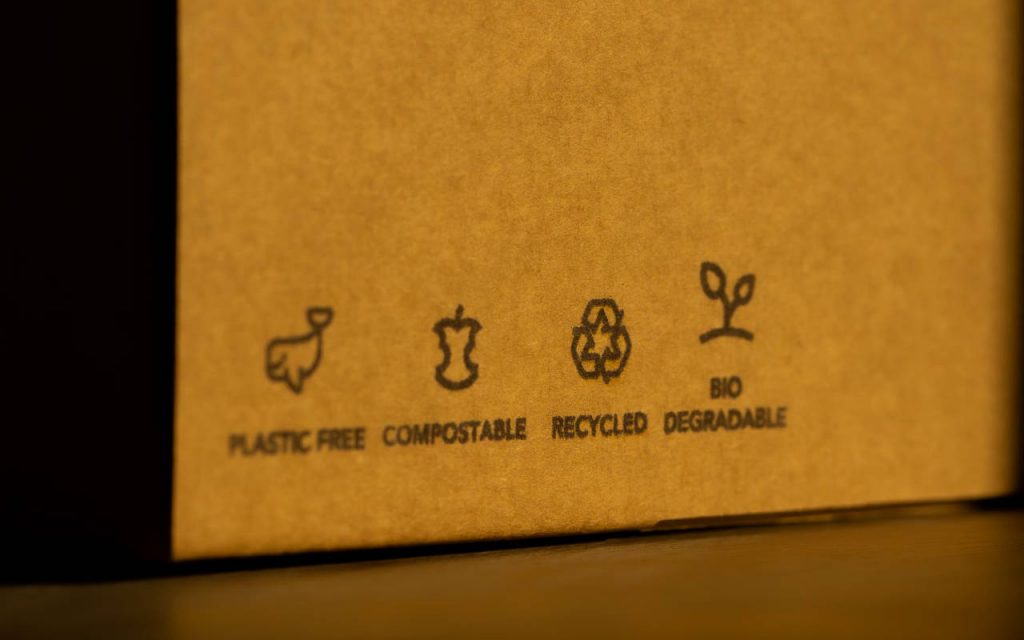It’s Plastic Free July, the month where anyone can challenge themselves to live with zero plastic in their lives. And what a challenge it is…
Take your average supermarket shop. If you can’t buy anything sold in plastic, that means no milk, or loaves of bread – and definitely no cheese. No pasta, no rice, no potatoes – actually, it’s hard to get food at all.
You could pick up loose, unpackaged foods, like bananas and many other kinds of fruit and veg. But if you saw how they arrived at the store, or how they were stored out back (protected with polythene tray liners and covers) – would you still count them as plastic free?
And then there’s things like toilet paper, toothpaste, and soap. If you run out, your options are severely limited.
For anyone who has tried living plastic free, just about every day is a near impossible challenge. And although plastic free alternatives to many products exist, they’re not cheap – and they’re not even truly plastic free.

Compared: the cost of plastic free alternatives
Here’s an example; 240 bags of Tetley tea – a good, old fashioned, proper tea – for £3.49. That’s a penny and a half per cuppa. But it’s packaged in plastic, and the teabag joints are sealed with a polymer.
But there is at least one proudly plastic free alternative.
Teapigs make high quality, speciality teas, as well as an old fashioned brew. But the best bit is that they claim to have plastic free packaging and plastic free tea bags, made from wood extracts and cornstarch, respectively.
But at a whopping £4 for just 15 tea bags, the cost of entry is way higher than a standard pack of tea bags. Even with the elevated quality, each cuppa will set you back 27p (and that’s before you count in the cost of milk and electricity to boil the kettle).
This is just one of many examples of the often extreme cost of going plastic free.
But even though they are packed in plastic free materials, these products must be shipped to stores and stored, just like any other product would. And that means being loaded onto pallets – which are always protected and secured with some kind of pallet cover.
You guessed it: that’s plastic.
You can go through a lot of effort to remove plastic from your personal purchases, but industry and supply chains rely on it so heavily that it’s completely impossible to escape, unless you get all of your purchases from the source. And even then, polythene for farming is a vital part of the modern food growing process.
Paper and glass are not viable plastic alternatives
Many voices in the plastic free community call for a return to paper and glass for packaging, just like “in the good old days”. But the problem with targeting plastic alone as the harbinger of environmental doom means that the wider environmental impact of the alternatives goes totally unchecked.
What if the cure is worse than the disease?
Both paper and glass are far more environmentally destructive than plastic.
Paper, and by extension card, is one of the dirtiest and most environmentally destructive materials in the world. First, it hinges entirely on deforestation for stock. Second, the manufacturing process is so poisonous that paper mill workers, and the people who live close to paper mills, have “significantly elevated mortality from all causes, all cancers, heart disease, lymphomas, and brain cancers”.
Read more – Is Cardboard Really Better For The Environment Than Plastic?
And glass? Well, it’s too brittle and fragile for most applications. It’s also extremely heavy (which adds significantly to carbon emissions of transport) and although slightly cleaner than quarrying, recycling glass takes an incredible energy input.
One advantage that glass does have is that it can be washed and sterilised, then directly reused – but it quite often breaks on disposal, making this an unlikely situation.
Find out more about single use plastic packaging alternatives.
It’s so, so difficult to avoid plastic. And even when you do, the alternatives often turn out to be even worse. So, knowing all of this, should you do Plastic Free july?
Should you do Plastic Free July?
Like Lent or Ramadan, Plastic Free July has something of a spiritual quality to it. Limitation is often a highly creative and meditative act, and can have many positive effects on your worldview – and by simply vowing to avoid plastic, your perspective and attention are shifted.
It shows you just how vital plastic has become to our way of life. It’s pretty sobering.
But inevitably, you will revert to using plastic. Because you must.
So, what is Plastic free July? Is it just gesturing – feeding the culture war? Is it reserved for the privileged few who can afford to pay £4 for 15 tea bags?
Or is it a force for good?
Actually, we think it’s a brilliant movement. To be more aware of how and why we use plastic – as individuals and as an industry – helps us to respect our material that much more.
We need plastic, but we certainly don’t need to waste it. Every little string of polymer counts, in our book.
So, rather than bin off plastic completely, let’s make the most of it. Let’s respect the materials we have, and the planet that gives them to us, by committing to recycling plastic and giving it a proper end-of-life, away from landfill.
Working together to solve plastic pollution
Let’s make the most of the materials we have, and reduce plastic pollution. Move your business over to high quality, customisable recycled plastic packaging, from NPF Packaging.
Get a quote now, or call us on 01773 820415.


